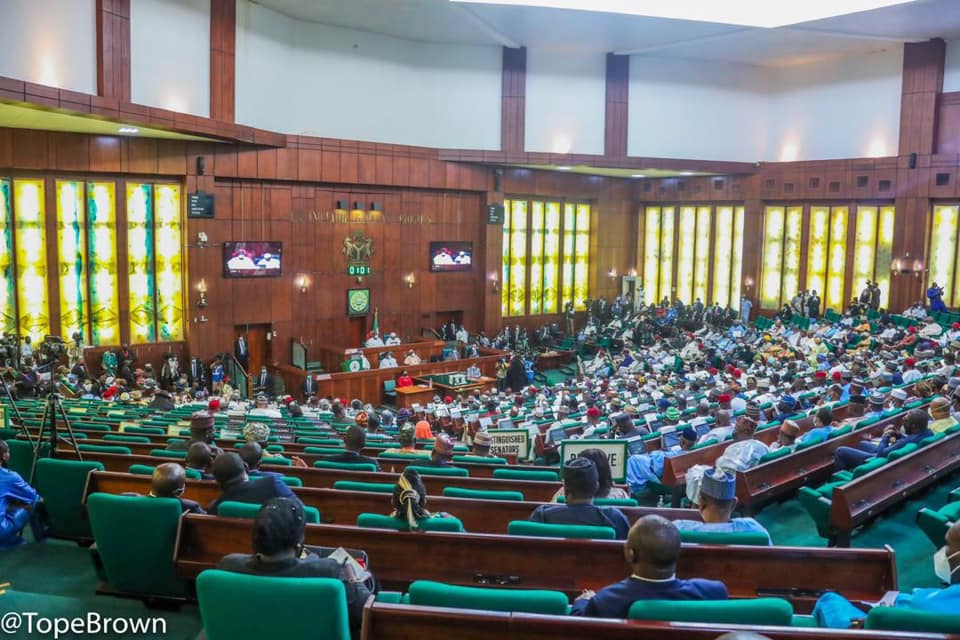Business
Aviation Fuel Hike: Reps, NNPC, Others Intervene

Following the astronomical hike in Aviation Turbine Kerosene, popularly called aviation fuel, and subsequent cancellations of flights resulting in overcrowding of Nigeria’s airports, the House of Representatives and other key stakeholders have intervened.
The intervention came sequel to a threat by domestic airlines under the Airline Operators of Nigeria, to shut down operations this week over skyrocketing aviation fuel price, during the investigative hearing by the House on fuel hike in Abuja on Monday.
The Tide’s source in Abuja said the threat forced the Deputy Speaker of the House, Ahmed Wase, and other major stakeholders to convene what is described as an emergency meeting within-the-meeting to address the issue.
Such stakeholders include: Group Managing Director, Nigerian National Petroleum Company Limited, MeleKyari; Chairman of Air Peace and Vice-President of the AON, Allen Onyeama; Chairman, Major Oil Marketers Association of Nigeria, OlumideAdeosun; and Chairman, Depot and Petroleum Marketers Association of Nigeria.
Kyari, who read out the resolution from the meeting, said, “We know this is a very difficult situation. We know that once aviation fuel increases, prices of flight tickets will certainly increase and this can surely cause pains for Nigerians.
“That is why we are working with you to ensure that those pains were minimised to the barest minimum. And one of the elements is the pricing of aviation fuel.
“So, what we have engaged with MOMAN, DAPMAN and the airline operators is that in three days’ time, their representatives will sit down and agree on a transparent base for pricing. That means that they ought to have a referenced benchmark that is quoted transparently in the market.
“They will have a referenced exchange rate for the naira so that everyone can compete. They will also agree on a premium, which currently differs from customer to customer, depending on the volume you buy and the credit level”, the NNPC boss stated.
Meanwhile, the jump in the cost of aviation fuel has resulted in over-crowded airports, as airlines reschedule and cancel flights at short notice, leaving passengers stranded.
Following the development and subsequent intervention by the House of Representatives on Monday, the Federal Government, airline operators and oil marketers agreed to peg the price of the commodity at N500/litre pending the resolution of the rising price crisis of the commodity.
The current price of aviation fuel is N670/litre and this cost has led to a crisis in the sector such as flight delays and cancellations due to the inability of airlines to easily access the commodity at that cost.
Business
Fidelity Bank To Empower Women With Sustainable Entrepreneurship Skills, HAP2.0
Business
President Tinubu Approves Extension Ban On Raw Shea Nut Export
Business
Crisis Response: EU-project Delivers New Vet. Clinic To Katsina Govt.
-
Maritime5 days ago
Nigeria To Pilot Regional Fishing Vessels Register In Gulf Of Guinea —Oyetola
-

 Sports5 days ago
Sports5 days agoGombe-Gara Rejects Chelle $130,000 monthly salary
-
Maritime5 days ago
Customs Declares War Against Narcotics Baron At Idiroko Border
-

 Sports5 days ago
Sports5 days agoTEAM RIVERS SET TO WIN 4×400 ” MORROW” …Wins Triple jump Silver
-

 Sports5 days ago
Sports5 days agoNPFL Drops To 91st In Global League Rankings
-
Maritime5 days ago
NIMASA,NAF Boost Unmanned Aerial Surveillance For Maritime Security
-

 Sports5 days ago
Sports5 days agoNIGER DELTA GAMES PANACEA TO YOUTH DEV”
-

 Sports5 days ago
Sports5 days agoNPFL Impose Fines On Kwara United Over Fans Misconduct

